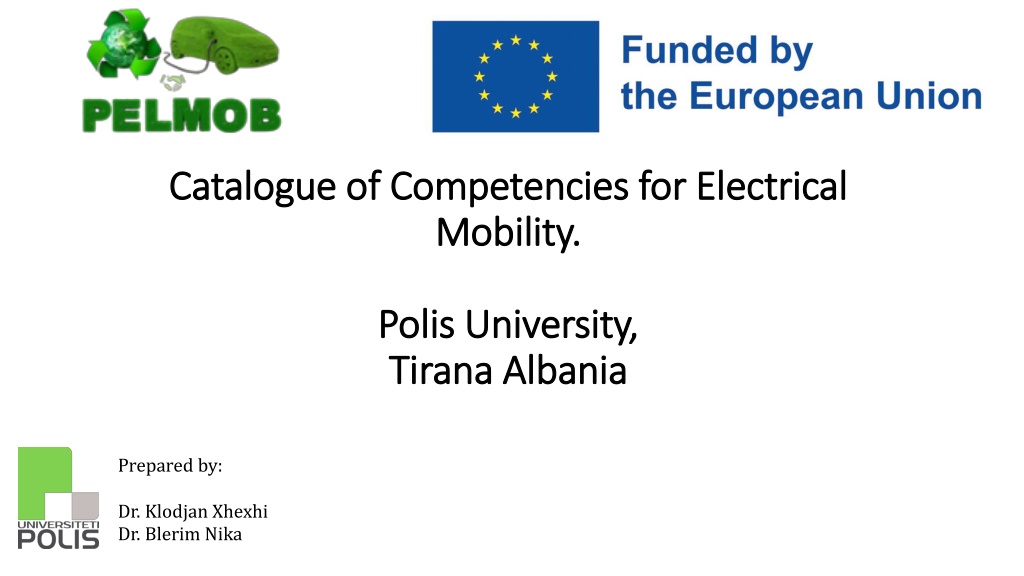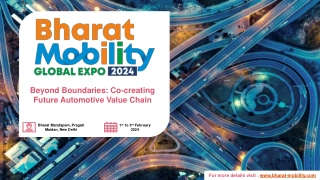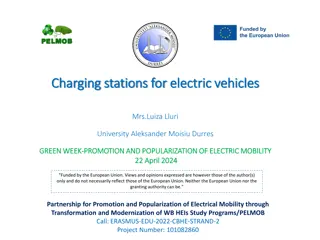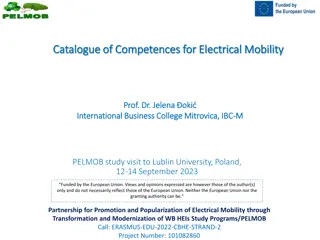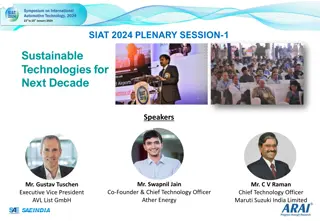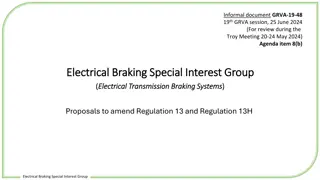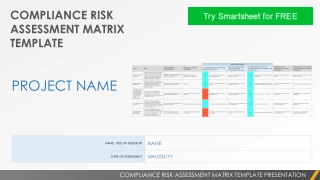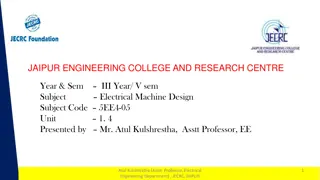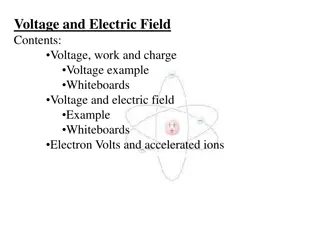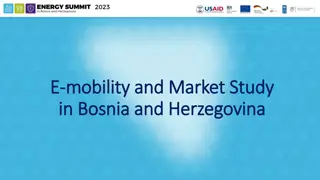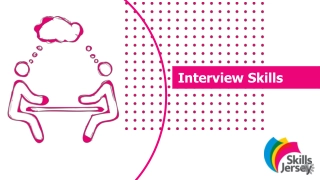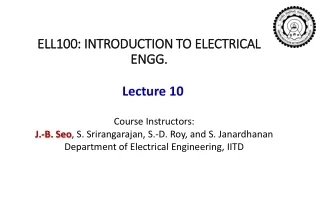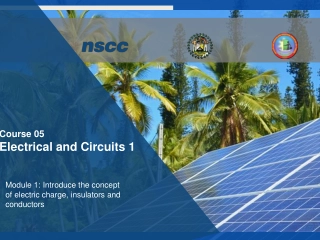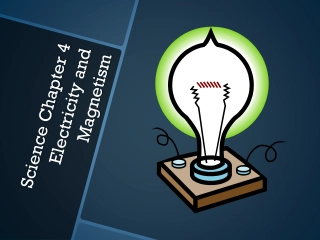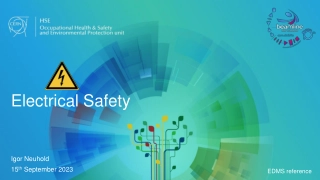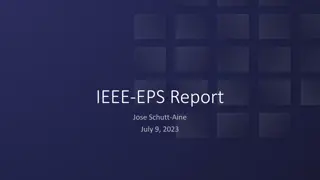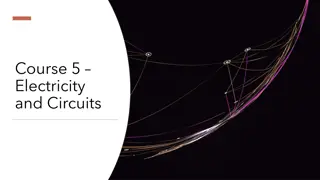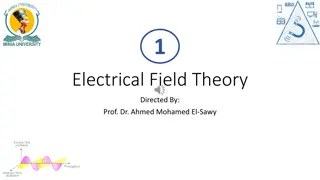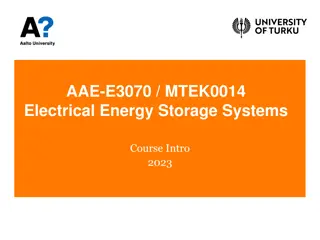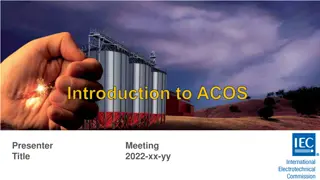Competencies for Electrical Mobility at Polis University, Tirana, Albania
This catalogue outlines the competencies required for electrical mobility, focusing on three key areas: Intrapersonal competence, Engineering competence, and Interpersonal competence. It emphasizes adaptability, self-management, resilience, and lifelong learning as essential qualities for success in the field. The document also highlights the importance of following new standards, regulations, and safety protocols related to electric vehicles and mobility.
Download Presentation
Please find below an Image/Link to download the presentation.
The content on the website is provided AS IS for your information and personal use only. It may not be sold, licensed, or shared on other websites without obtaining consent from the author. Download presentation by click this link. If you encounter any issues during the download, it is possible that the publisher has removed the file from their server.
Presentation Transcript
Catalogue of Competencies for Electrical Catalogue of Competencies for Electrical Mobility. Mobility. Polis University, Polis University, Tirana Albania Tirana Albania Prepared by: Dr. Klodjan Xhexhi Dr. Blerim Nika
Professional competence Three group of competences for the e-mobility are discussed: Intrapersonal competence Engineering competence Interpersonal competence
1. Intrapersonal competence Adaptability, self-management, self-esteem, resilience, and time management are the key factors of this competence. This mindset is also known as intrapersonal intelligence. Electrical mobility requires a mix of intellectual, creative, and critical thinking as well as ethical and moral concerns. These characteristics will enable to significantly advance in the field while upholding a strong commitment to security, sustainability, and the general welfare of society. While preserving our flexibility to embrace new standards, a passion for self-directed, lifelong learning is a vital advantage in developing electrical mobility toward a cleaner, and more sustainable future. Engagement in self-analyses, accomplishments and life plans will help to overcome the electric mobility problematic. reflections on the goals and
1.1 Self-directed, Lifelong Learning Determine your preferred learning style in electric mobility. Encourage a positive and self-directed mentality. You must have the mindset that you can continue to study throughout your life if you want to be a lifelong learner in the field, and Surround yourself with other lifelong learners. Continually searching to join taking part in continuous educational opportunities and keep in touch with the current and the newest developments in: 1. Electrical mobility, 2. EV technology, and related disciplines. Keeping up with local, regional, and federal rules, laws, and incentives relating to electric mobility as they change. Making choices concerning the adoption of electric vehicles requires an understanding of government programs, tax incentives, and subsidies in Albania.
1.2 Ability to follow new standards The majority of knowledge-based activities largely rely on technology. The primary problem, however, is that these abilities must be integrated into the field of knowledge where the activity is being conducted. Being aware of and adhering to the most recent safety standards, laws, and regulations pertaining to electric cars and electrical mobility. Swift standard-change adaptation, with corresponding modifications to EM procedures, designs, and tactics. Keeping precise records of standard compliance, including test results, certificates, and safety evaluations. Recognizing potential interactions between new standards and other key disciplines including energy management, battery science, and charging infrastructure
1.3 Intellectual, Innovative, Critical Thinking In addition to new research, technological advancements, and the quick distribution of concepts and methods via the Internet, knowledge is also changing quickly due to an increase in information sources and a wide range in the information's validity or dependability. Excellent intellectual ability, an inventive mentality, and critical thinking abilities define intrapersonal competency in electrical mobility. Expanding knowledge of energy management systems, charging infrastructure, and electric car technologies should be the aim of this competency. It's critical to find effective answers to challenging issues in the area of electrical mobility. Identifying prospective developments and enhancements in current methods and technology should to be a part of this competency.
1.4 Ethical This is necessary to establish trust, which is crucial in informal social networks, but it is also wise business practice in a world with many diverse participants and a growing dependence on others to achieve one's own aims. Professionals must be dedicated to making sure that work complies with the highest moral principles, giving safety, environmental sustainability, and social responsibility a priority. To secure consumers and the environment in accordance with Albanian government regulations, it is crucial to keep ethical standards in mind when developing and implementing electric cars and accompanying infrastructure.
1.5 Conscientiousness The ability to locate, assess, analyze, apply, and distribute information within a specific context is the crucial competency in a knowledge-based society. We are guided by our conscientious nature to be comprehensive, responsible, and precise in our work with electrical mobility. Stakeholders should carefully investigate, organize, and implement EM initiatives, ensuring that all components conform to applicable standards and laws. The careful consideration to detail and emphasis on accuracy in EM contribute to the successful development and deployment of electric cars that exceed the highest quality as well as security requirements.
2. Engineering competence Our engineering competences will help to better understand the electric mobility in cities. Professionals with engineering skills are well-equipped to contribute considerably to the development and progress of electrical mobility. We are able to solve complicated issues in this fast expanding industry because of our technical competence mixed with scientific and mathematical understanding. Furthermore, will be envisioned and build cutting-edge solutions that can impact the future of electric mobility, making it more efficient and sustainable. The incorporation of electric mobility in Albania requires time and effort due to lack of electric infrastructure. Overcoming such issue is a real challenge in Albanian context not just for engineers but also for the other actors within the country.
2.1 Technical, Analytical A solid technical basis in electrical mobility is required, including understanding of electric vehicle systems, power electronics, charging infrastructure, and battery technologies. Analyze complicated technological challenges connected to electric transportation and utilize knowledge to find efficient solutions. Economic Barriers- high costs Regulatory Barriers- Characterization of EV charging activity Tariff related issues Technical Barriers- Charger standards and protocol issues, Grid stability issues, Battery performance issues. Informational Barriers- Lack of awareness, Range anxiety.
2.2 Scientific Understanding the basic concepts underpinning electric car technology and electrical mobility requires scientific expertise. The scientific theories behind battery chemistry, electric motor effectiveness, electronic systems, and other components of electric mobility should be thoroughly understood by academic personnel.
2.3 Mathematical In electrical mobility engineering, mathematical expertise is crucial. It is crucial to simulate and assess electric vehicle performance, energy consumption, and charging efficiency using mathematical methods. Real time applications and measurements using mathematical problems.
2.4 Innovative, Creative, Design Thinking Clarify, ideate, develop, and implement knowledge and design in electric mobility. The need for creativity, inventive problem-solving, and the design thinking methodology enable professionals to imagine novel concepts in electrical mobility. It is crucial to always look for new approaches to enhance the sustainability, usability, and performance of electric vehicles.
3. Interpersonal competence The capacity of students to connect with others and the larger society is the emphasis of the interpersonal competency domain. The capacity for interdependence and collaboration, as well as the ability to establish and sustain healthy, mutually beneficial relationships with others, are all components of competence in this area. Electrical mobility get used of interpersonal competencies in order to concentrate on effective communication, teamwork, leadership, project management, and cross-cultural competency. These characteristics will help to successfully interact with people from various backgrounds in the search for cutting-edge and sustainable electric transportation solutions. They also will enable to manage teams toward common goals. The development of electrical mobility benefits greatly from the ability to forge strong working connections and foster inclusive workplaces. Due to the continuing evolution of the information base, this process is ongoing in knowledge-based work.
3.1 Communication We need to incorporate social media communication abilities in addition to the traditional communication skills of reading, speaking, and writing effectively and eloquently. The capacity to communicate information properly, receive and incorporate comments from a large group of people via the Internet, and see trends and ideas from other sources. Strong communication abilities are a defining trait of interpersonal competency in electrical mobility. Colleagues, students, stakeholders, and the general public are just a few of the several audiences that team members must successfully communicate difficult technical ideas linked to electric cars and electrical mobility to. To ensure that information is properly comprehended, it is crucial to use clear, simple language. Collaboration with persons from various backgrounds and technical competence is made possible through communication skills.
3.2 Teamwork Professionals rely largely on cooperation and the exchange of knowledge with others in similar but autonomous organizations, even though numerous knowledge professionals operate independently. Knowledge professionals must be able to collaborate electronically and remotely with coworkers, clients, and partners. Collective knowledge, problem-solving, and execution necessitate effective cooperation and flexibility in accepting assignments or resolving issues that may fall beyond the authority of a certain job description but are nevertheless crucial for success. Recognizing the importance of teamwork and actively participating in collective efforts in electrical mobility. Recognize others' contributions, pay attention to other viewpoints, and foster a supportive team environment. To achieve shared objectives for electric transportation initiatives, a cooperative and productive environment is fostered by willingness to share expertise and support for colleagues.
3.3 Leadership, Project Management The capacity to influence and direct followers or members of a group, organization, community, or team is known as leadership. Leadership and project management in electrical mobility efforts also require interpersonal ability. To effectively manage teams and assume leadership responsibilities, team members need to have the necessary leadership skills. Electric mobility projects may be planned, organized, and carried out effectively with the help of strong project management abilities. Project results are successful when activities are delegated, priorities are established, and resources are managed effectively.
3.4 Social, Intercultural Beyond technical considerations, interpersonal competency in electrical mobility includes social and intercultural competencies. Members of the team must be skilled at negotiating a variety of cultural contexts and promoting inclusive settings. Effectiveness in projects using electric mobility is increased by the capacity to adjust communication and cooperation methods to fit various cultural situations. Successful relationships and cooperation with HEI stakeholders in Europe depend on multicultural skills. Social skills can facilitate interaction and communication with others where social rules and relations are created, communicated, and changed in verbal and nonverbal ways.
